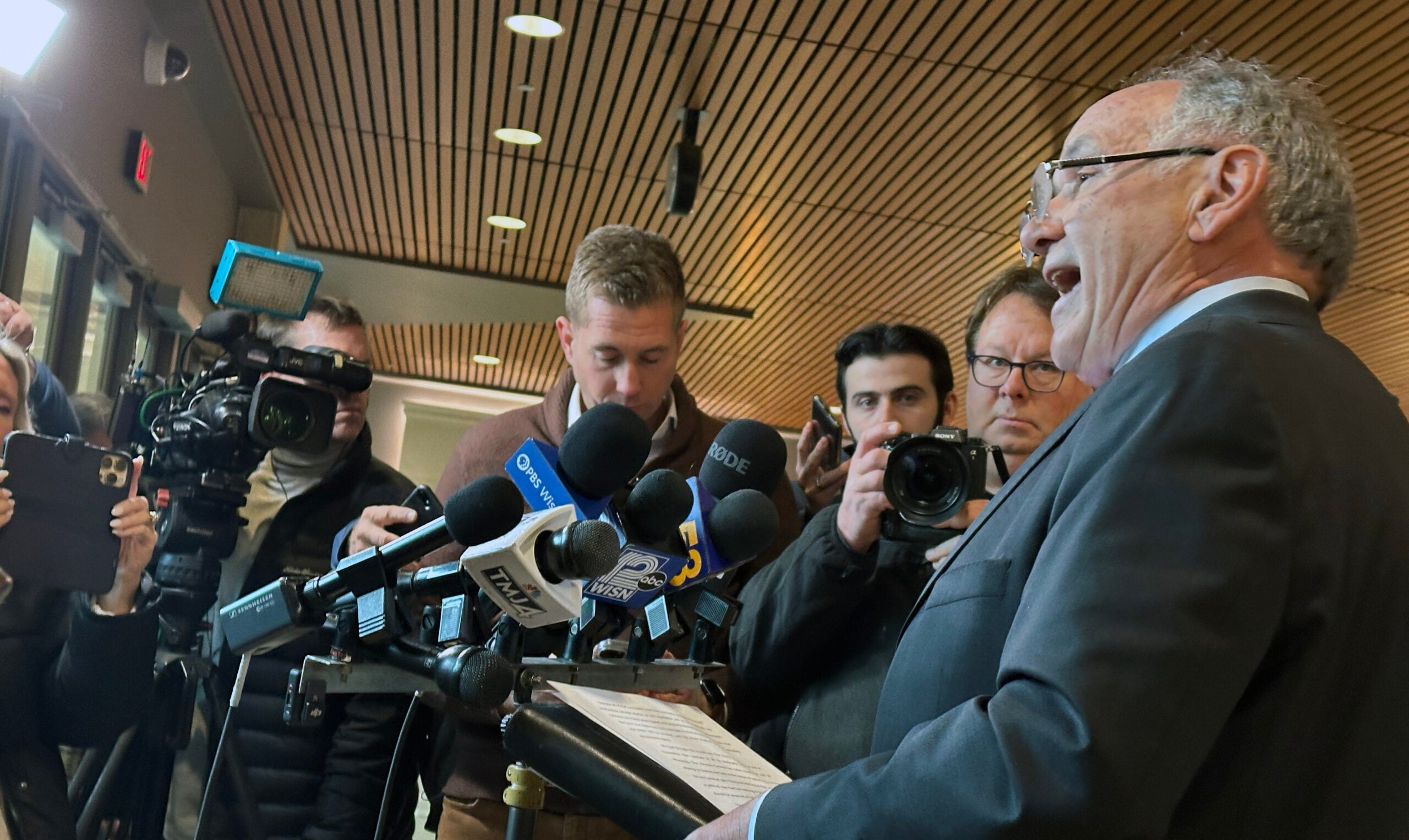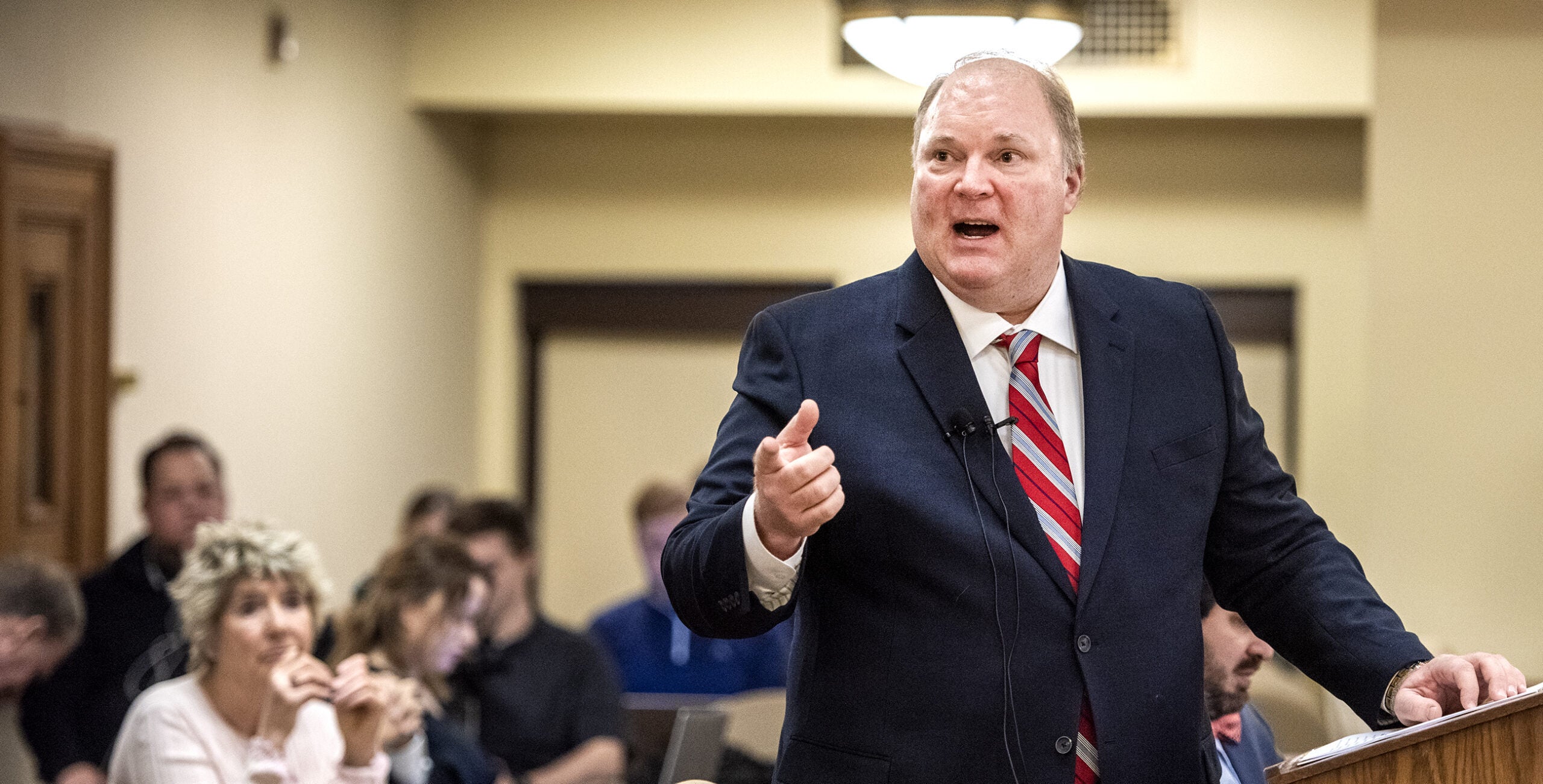Two Wisconsin lawyers are coming under fire for their efforts to overturn the 2020 presidential election.
The 65 Project filed ethics complaints against 15 lawyers Wednesday, including Michael D. Dean of Brookfield and Daniel J. Eastman of Mequon, who were involved in a series of lawsuits on behalf of former President Donald Trump.
Neither Dean nor Eastman responded to a request for comment. All 15 lawyers were involved in litigation in Wisconsin.
News with a little more humanity
WPR’s “Wisconsin Today” newsletter keeps you connected to the state you love without feeling overwhelmed. No paywall. No agenda. No corporate filter.
The 65 Project is named for the 65 lawsuits filed by Trump-allied lawyers in swing states immediately after the 2020 election that seek to overturn Joe Biden’s victory.
The group states that it aims to hold lawyers accountable for “fraudulent legal actions aimed at overturning legitimate elections.”
Since March, the project has filed about 40 ethics complaints against attorneys across the country.
The complaints are meant to deter lawyers nationwide from filing baseless lawsuits by exposing some lawyers, said Michael Teter, the group’s managing director.
“We want to do that by holding them accountable for their efforts and by publicizing their work so that they are known within their communities as having sought to overturn the 2020 presidential election through abusing the court system,” he said.
Because the results in Wisconsin were close, and because the state Legislature is dominated by Republicans, Teter said lawyers throughout the country targeted Wisconsin. They aimed “to convince the Republican legislature to then disregard the people’s will and to change the outcome of the electoral vote.”
But these lawsuits, he said, were mainly a political tool. Most lawyers didn’t expect to win, he said, and many dismissed their own cases within a week of filing. Despite that, he said they chipped away at public trust in the election results.
“It lends legitimacy and credibility to the bogus and fraudulent efforts to say that the elections were rigged or that the elections outcomes were not legitimate,” Teter said. “Lawyers lending their professional license to the effort also suggests to the broader public that there are some claims that could be backed by the courts and by the law.”
In the complaints against both Wisconsin lawyers, Eastman and Dean, the 65 Project cited their work on Feehan v. Wisconsin Elections Commission.
That case, the ethics complaint read, “lacked any basis in law or fact” and was “nearly a carbon copy of litigation filed in other cases.”
Eastman and Dean filed that suit four weeks after the election, asking the federal court to order state officials decertify the election results and order Gov. Tony Evers to “instead transmit election results that declared Donald Trump to be ‘the winner of this election.’”
The attorneys claimed their case brought to light “massive election fraud” throughout the state, proven through dozens of eyewitness accounts and “statistical anomalies and mathematical impossibilities.”
They claimed Democratic candidates won through “ballot-stuffing” and illegally handling absentee ballots. They also alleged that “hundreds of thousands of illegal, ineligible, duplicate or purely fictitious ballots” were unlawfully counted and said software used by the WEC, which foreign dictators created to steal their own elections, manipulated the results.
“The entire process is so riddled with fraud, illegality, and statistical impossibility that this Court, and Wisconsin’s voters, courts, and legislators, cannot rely on, or certify, any numbers resulting from this election,” Eastman and Dean wrote.
The U.S. District Court in Wisconsin dismissed the case.
The judge wrote that the “plaintiffs’ alleged injury does not entitle them to seek their requested remedy because the harm of having one’s vote invalidated or diluted is not remedied by denying millions of others their right to vote.”
Representatives of the Wisconsin Office of Lawyer Regulation could not be reached for comment. According to the office’s website, the organization evaluates the ethics complaints made against attorneys, and if sufficient evidence is found, conducts their own investigation.
Depending on the results, the lawyers could have their licenses suspended or revoked.
Wisconsin Public Radio, © Copyright 2025, Board of Regents of the University of Wisconsin System and Wisconsin Educational Communications Board.







